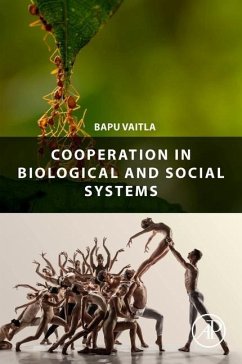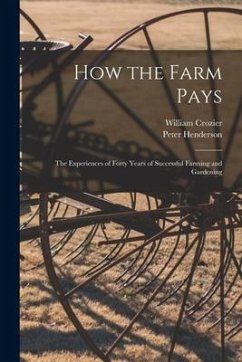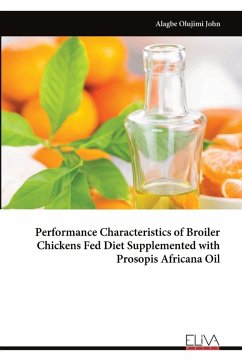
Reciprocity and cooperation in family farming performance
The importance of reciprocal relationships and cooperation networks in the socioeconomic performance of family farming
Versandkostenfrei!
Versandfertig in 6-10 Tagen
22,99 €
inkl. MwSt.

PAYBACK Punkte
11 °P sammeln!
This study seeks to understand family farming in the Missões Region of the state of Rio Grande do Sul, based on its endogenous and exogenous socioeconomic relationships, and to understand the economic logic of family farming units in producing what is necessary for self-sustainability with adequate use of available family labor and their customs, traditions, cultures, and symbolism present in their social relationships, including reciprocal relationships. Thus, this research demonstrates the commercial integration of milk producers and their confrontation with the oligopoly of the dairy indus...
This study seeks to understand family farming in the Missões Region of the state of Rio Grande do Sul, based on its endogenous and exogenous socioeconomic relationships, and to understand the economic logic of family farming units in producing what is necessary for self-sustainability with adequate use of available family labor and their customs, traditions, cultures, and symbolism present in their social relationships, including reciprocal relationships. Thus, this research demonstrates the commercial integration of milk producers and their confrontation with the oligopoly of the dairy industry, which has the power to set product prices. In order to counterbalance this power, producers organize themselves into marketing networks, increasing their ability to demand better prices and production conditions. Understanding this process of producer organization leads to this study of how these cooperation networks are formed and why they are formed among such producers, in addition toverifying whether this organization provides opportunities for better socioeconomic performance.







![Putting Farming on a Modern Business Basis: [being a Letter to the Secretary of the Kansas State Board of Agriculture] Cover Putting Farming on a Modern Business Basis: [being a Letter to the Secretary of the Kansas State Board of Agriculture]](https://bilder.buecher.de/produkte/65/65628/65628796n.jpg)
![What I Know of Farming [microform]: a Series of Brief and Plain Expositions of Practical Agriculture as an Art Based Upon Science Cover What I Know of Farming [microform]: a Series of Brief and Plain Expositions of Practical Agriculture as an Art Based Upon Science](https://bilder.buecher.de/produkte/64/64369/64369574n.jpg)

![Successful Farming [microform]: How to Farm for Profit, the Latest Methods Cover Successful Farming [microform]: How to Farm for Profit, the Latest Methods](https://bilder.buecher.de/produkte/66/66185/66185657n.jpg)
![A New System of Agricultural Book-keeping, or, A Safe and Easy Method for Conducting Farming Operations [microform] Cover A New System of Agricultural Book-keeping, or, A Safe and Easy Method for Conducting Farming Operations [microform]](https://bilder.buecher.de/produkte/66/66184/66184295n.jpg)
